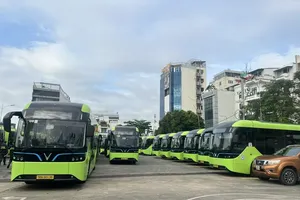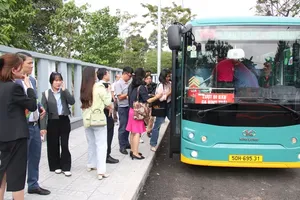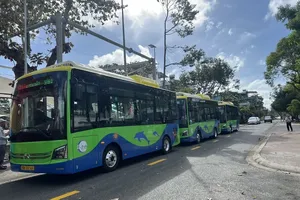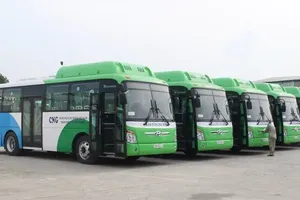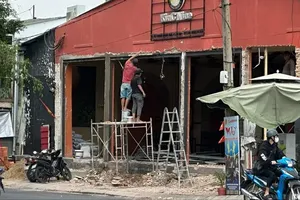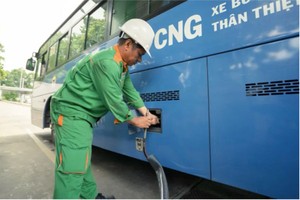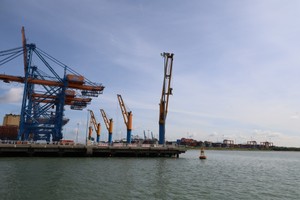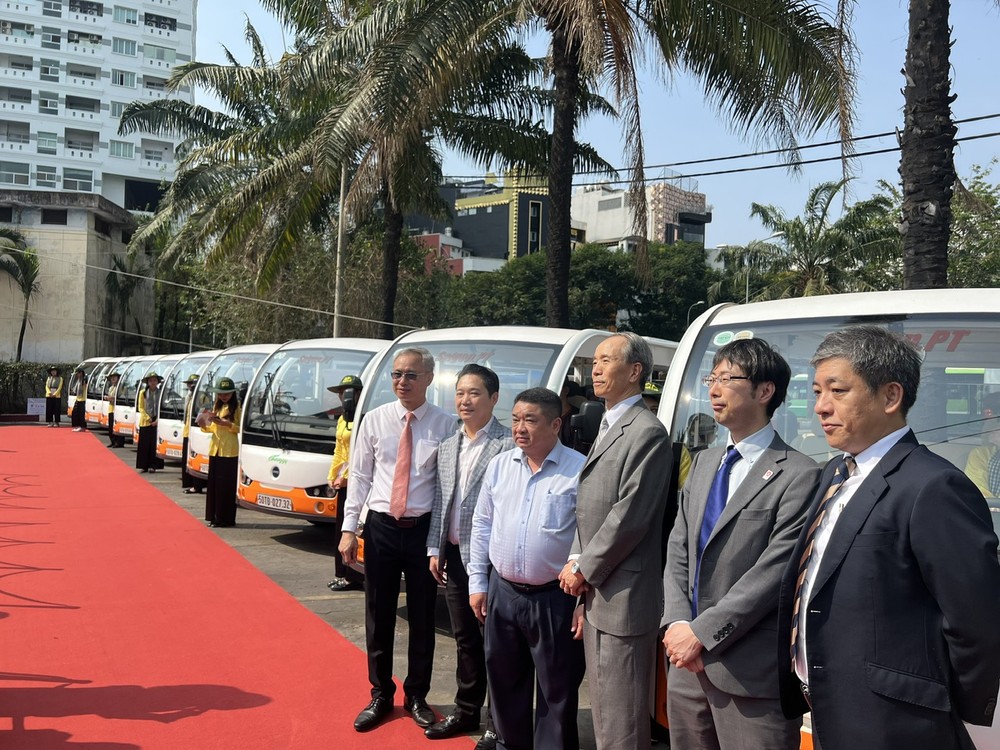
The service operates from 6 a.m. to 12 p.m. per day. Drivers of these cars wear traditional 'ao ba ba' outfits; have communication skills as well as basic knowledge to serve tourists and B2 driver's licenses.
Tourists can rent electric cars at the price of VND120,000 (US$4.8) and VND250,000 (nearly US$10) per 30 minutes for a trip before 6 p.m. and after 6 p.m., respectively if they get the vehicles at Saigon Bus Station at September 23 Park in District 1.
As for pick-up and drop-off service at tourists’ locations, the prices range from VND60,000 (US$2.4) to VND80,000 (US$3.2) per vehicle for a trip before 6 p.m. and from VND120,000 (US$4.8) to VND240,000 (US$9.5) per car for a trip after 6 p.m.
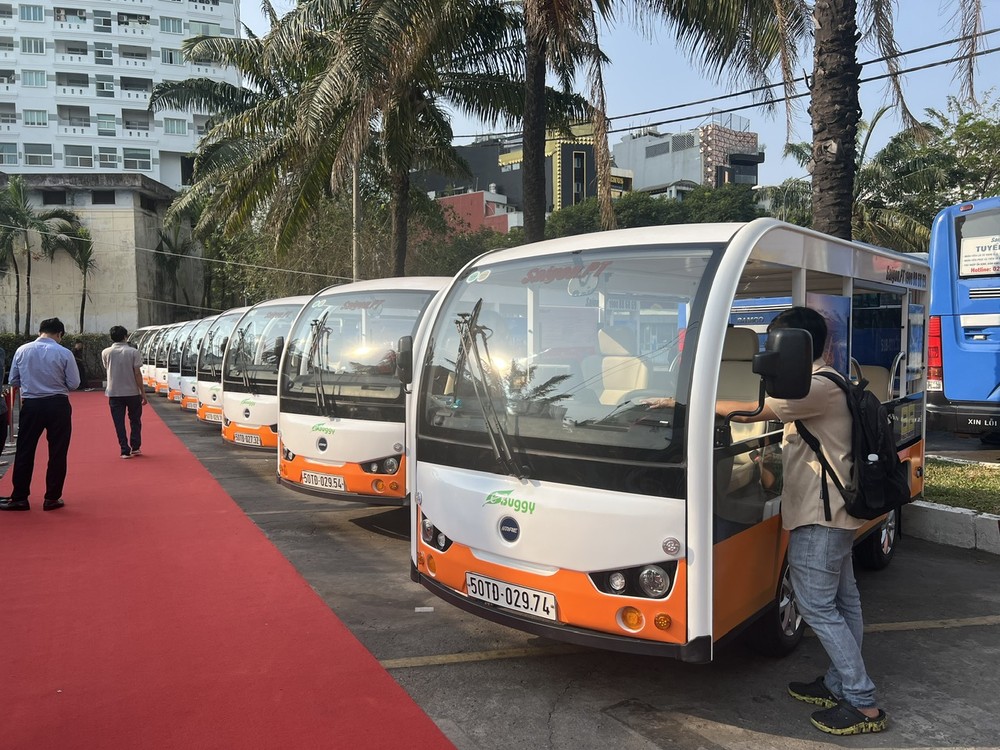
The electric cars will run within the city’s downtown area connecting District 1 and District 4 through Nha Rong Wharf, Khanh Hoi Bridge, Ton Duc Thang, Nguyen Binh Khiem, Nguyen Thi Minh Khai, Hoang Sa, Hai Ba Trung, Nguyen Van Cu and Vo Van Kiet streets, Calmette Bridge, Doan Van Bo, Hoang Dieu and Nguyen Tat Thanh streets and Nha Rong Port; connecting District 5 and District 6 through Nguyen Van Cu, Nguyen Trai, Nguyen Tri Phuong, Hung Vuong, Hong Bang, Nguyen Thi Nho, Le Quang Sung, Pham Dinh Ho, Thap Muoi, Hai Thuong Lan Ong, Vo Van Kiet and Nguyen Van Cu streets.
The e-cars are manufactured in Vietnam with American-standard battery technology, German engines and Toyota's Engine Control Unit (ECU) which cost double the price of gasoline-powered cars.
The People's Committee of Ho Chi Minh City assigned the municipal Department of Transport to monitor and assess the implementation results during and after the pilot period.
In order to ensure traffic safety and order, the electric vehicles must pick up and drop off passengers according to regulations.
